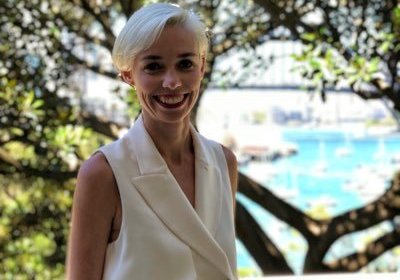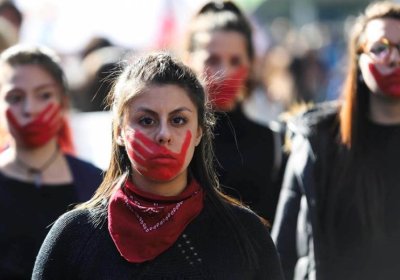The NSW Greens appear to be heading for a split, with the right wing of the party initiating a McCarthyite campaign to purge socialists from its membership.
Sexual abuse, assualt, harassment and violence
Former NSW Labor leader Luke Foley was forced to resign on November 7 after ABC journalist Ashleigh Raper alleged that he put his hand inside her dress and into her underpants without her consent at a 2016 Christmas party.
Tech giant Google was hit by an unprecedented global walkout on November 1 as female staff led colleagues off the job in protest against sexual harassment.
Workers left their desks at 11.10am local time in offices from Tokyo to San Francisco, including in Singapore, Zurich, London and Dublin.
The Walkout for Real Change was originally organised by female software engineers in the United States. It rattled company CEO Sundar Pichai, who was prompted to express support for it.
For the past month, Chile has been moving to the beat of demonstrations and university occupations carried out by a historic feminist movement calling for non-sexist education and an end to harassment and gender inequality, write Clémence Carayol & Mathieu Dejean.
The size — and composition — of the national vigils for comedian Eurydice Dixon on June 18 has given us some hope that with a growing awareness about violence against women we can achieve at least some of the measures we so desperately need.
Not since the community response to Jill Meagher’s murder in 2012 have so many people taken to the streets to demand that women have the right to live free of fear.
The rape and murder of comedian Eurydice Dixon in Melbourne on June 12 has prompted a nationwide discussion about the endemic nature of male violence against women, as well as a push for solutions — short and long-term.
MARGARITA WINDISCH, a sexual assault councillor and educator on family violence at Victoria University, spoke to 3CR on June 18. Below is a transcript of her remarks. The full Podcast can be found here.
***
I’m pleased there has been a swift backlash to the Victorian police urging women to take responsibility for their safety after the murder of Eurydice Dixon on June 12.
The police response is both ridiculous and misogynist. It puts the onus on women to avoid being attacked.
The logical extension of their approach is for women to stay at home, and only go out with a male chaperone.
Don Burke, a television host and “family man”, is the latest celebrity to be outed as a serial sexual harasser. A joint investigation by Fairfax Media and the ABC has uncovered multiple claims of Burke committing indecent assault, sexual harassment and bullying of women in the late 1980s and 1990s.
As more women come forward with their horrific experiences with this particular monster, we need to ask what more can be done? Do we just expose more perpetrators, or is there something else?
A new report, entitled Don’t send me that pic, has reaffirmed what most women and girls already knew: sexual abuse and harassment are incessant, it starts young and it is on the rise.
Commissioned by Plan Australia and Our Watch, the survey collected responses from 600 girls and young women aged 15–19 across Australia.
The October 17 edition of The Age has a front page story about bullying and sexual harassment in the Country Fire Authority (CFA).
The article said: "Women working for the CFA have been sexually assaulted and harassed amid a culture of fear, bullying and impunity, according to a leaked internal report whose existence has been a tightly held secret until now."
In the wake of US film producer and former studio executive Harvey Weinstein’s outing as a sexual predator, who infamously preyed on young actresses, the hashtag #MeToo, which women are sharing to say that they too have experienced sexual assault or harassment, is now trending as an international discussion ensues about sexual violence and power.
So far more than 12 million women have shared the hashtag.
In Trauma and recovery: The aftermath of violence — from domestic abuse to political terror, psychiatrist and trauma specialist Judith Herman wrote: “The ordinary response to atrocities is to banish them from consciousness. Certain violations of the social compact are too terrible to utter aloud: this is the meaning of the word unspeakable.”
- Previous page
- Page 4
- Next page











